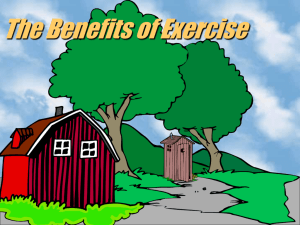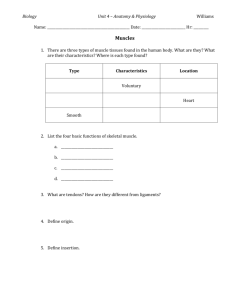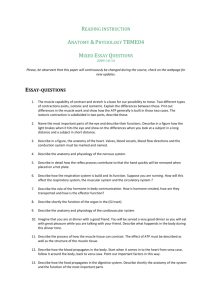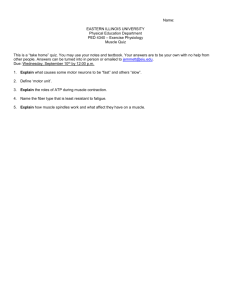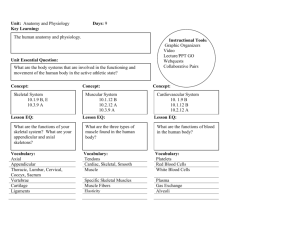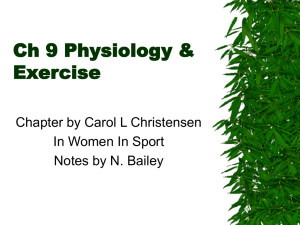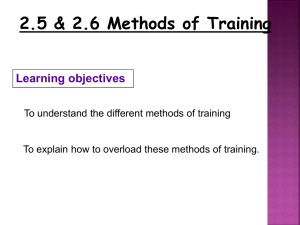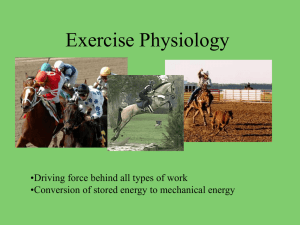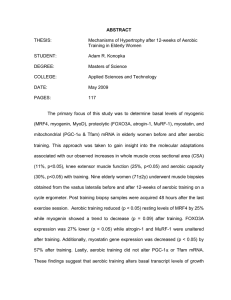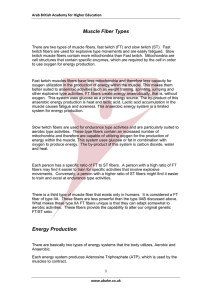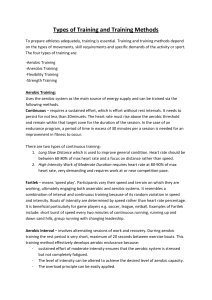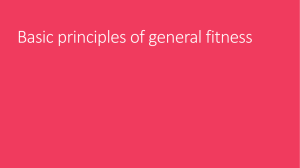General and Sports Physiology
advertisement
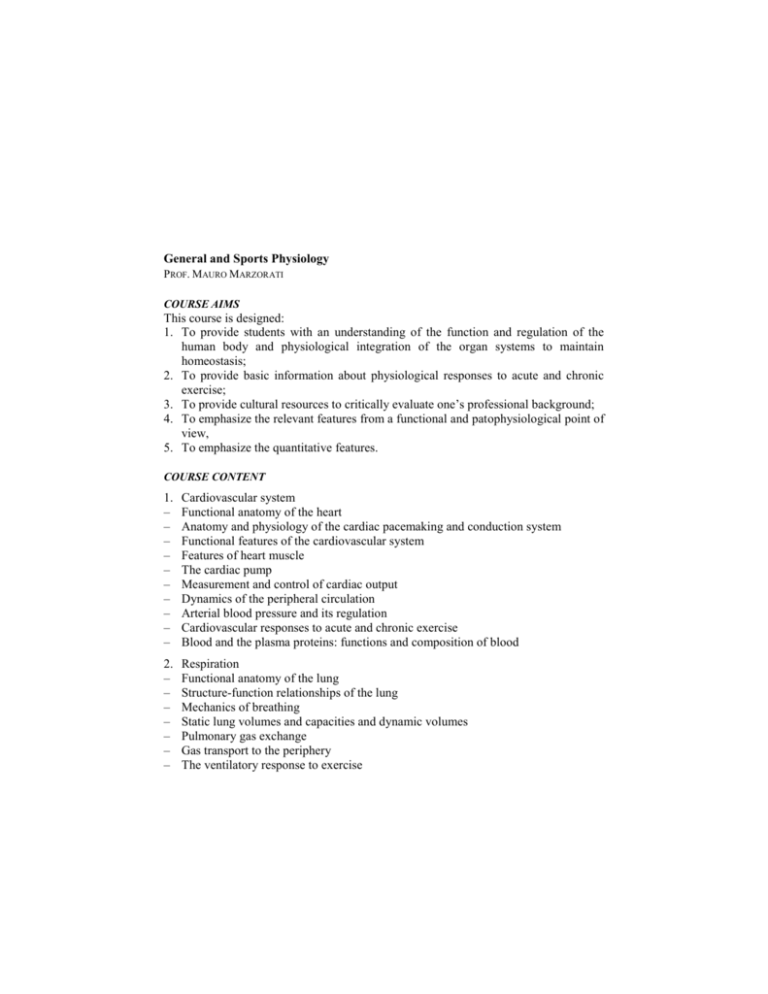
General and Sports Physiology PROF. MAURO MARZORATI COURSE AIMS This course is designed: 1. To provide students with an understanding of the function and regulation of the human body and physiological integration of the organ systems to maintain homeostasis; 2. To provide basic information about physiological responses to acute and chronic exercise; 3. To provide cultural resources to critically evaluate one’s professional background; 4. To emphasize the relevant features from a functional and patophysiological point of view, 5. To emphasize the quantitative features. COURSE CONTENT 1. – – – – – – – – – – Cardiovascular system Functional anatomy of the heart Anatomy and physiology of the cardiac pacemaking and conduction system Functional features of the cardiovascular system Features of heart muscle The cardiac pump Measurement and control of cardiac output Dynamics of the peripheral circulation Arterial blood pressure and its regulation Cardiovascular responses to acute and chronic exercise Blood and the plasma proteins: functions and composition of blood 2. – – – – – – – Respiration Functional anatomy of the lung Structure-function relationships of the lung Mechanics of breathing Static lung volumes and capacities and dynamic volumes Pulmonary gas exchange Gas transport to the periphery The ventilatory response to exercise – Control of ventilation 3. – – – – – – – – Renal function (the essentials) Functional anatomy of the kidneys The nephron and its portions The juxtaglomerular apparatus and the renin system Renal blood flow Glomerular filtration Clearance Tubular function Urinary concentration and dilution 4. – – – – – – – – The muscular system and nervous control of motor activity Structure and ultrastructure of skeletal muscle Mechanics of muscle contraction Length-tension relationship of the sarcomere and of the isolated muscle Force-velocity relationship Motor Unit. Muscle strength Nervous control of the motor system Acute muscle fatigue 5. – – – – – – Muscle energetics Energy sources for muscle contraction Anaerobic (alactic and lactic) and aerobic metabolism Kinetics of gas exchange Limiting factors to maximum aerobic power. Maximum aerobic power as a function of age and gender. Anaerobic threshold 6. Biomechanics and bioenergetics of locomotion – Walking and running – Energy expenditure of some types of human locomotion and of various sport and physical activities 7. – – – – Metabolism, nutrition physiology and thermoregulation Basal metabolic rate Respiratory quotient. Substrate utilization at rest and during exercise Glycogen – – – – – Digestion and absorption of major nutrients Caloric values of foodstuffs Healthy diet Nutrition for the athlete Thermoregulation mechanisms 8. – – – Exercise at altitude Aerobic metabolism Anaerobic metabolim Training at altitude and sea level performance 9. Diving under water – Breath-hold diving – SCUBA diving 10. Physical activity,health and aging – Beneficial effects of physical activity – Exercise is medicine READING LIST AA.VV., Fisiologia dell’uomo, edi-ermes, Milano. 2010. W.D. MCARDLE-F.I. KATCH-V.L. KATCH, Fisiologia applicata allo sport, Casa Editrice Ambrosiana, Milano, 2009 (2nd ed.). TEACHING METHOD Lectures in the lecture room in collaboration with Prof. Claudio Marconi, Dr. Simone Porcelli and Dr. Giuseppe Bellistri. Graphs and figures shown during lectures will be made available to students. Practical additional classes carried out in the exercise laboratory of the IBFM-CNR, Segrate (Milan) may be included in the Course. ASSESSMENT METHOD Oral examination. NOTES A limited number of interested students may practice in the exercise laboratory of IBFMCNR at Segrate (MI). Thesis may be carried out by students attending the laboratory for at least 3 months. For any question related to the course students may contact Dr. Marzorati at the end of the lesson or by mail (mauro.marzorati@ibfm.cnr.it). Further information can be found on the lecturer's webpage http://www2.unicatt.it/unicattolica/docenti/index.html or on the Faculty notice board. at
